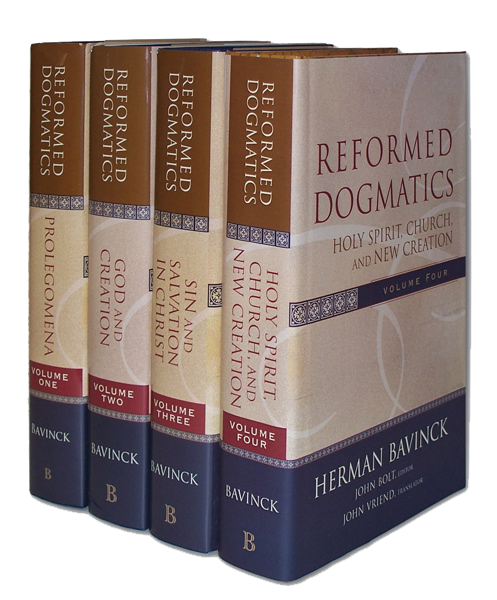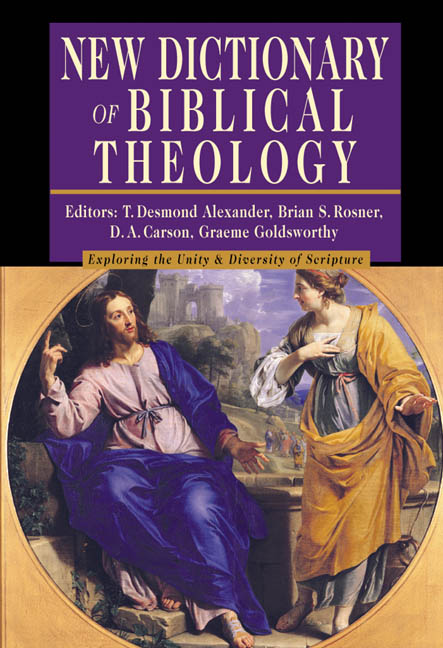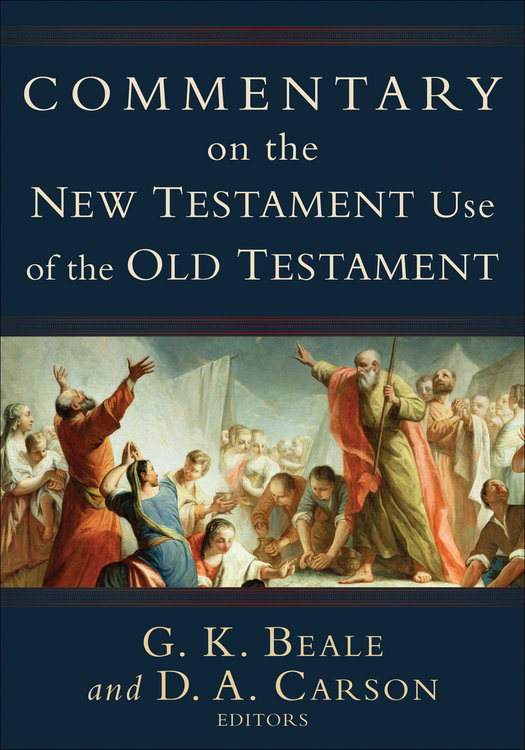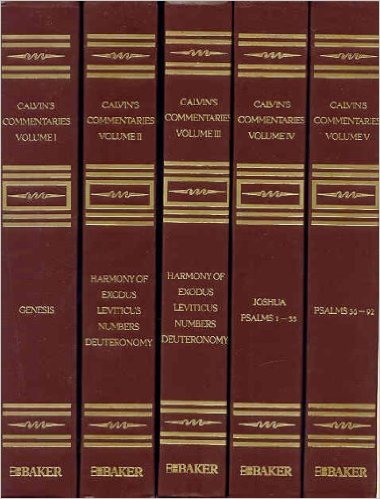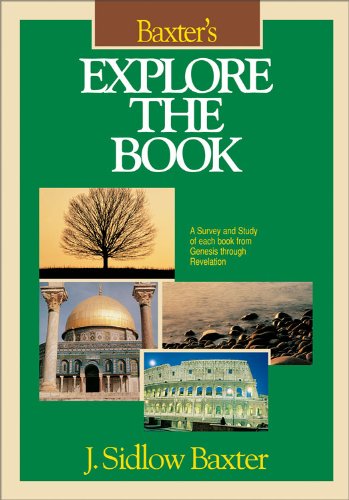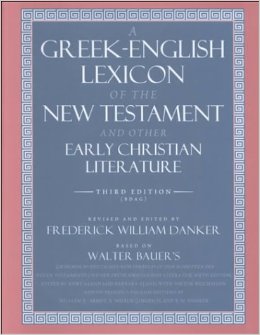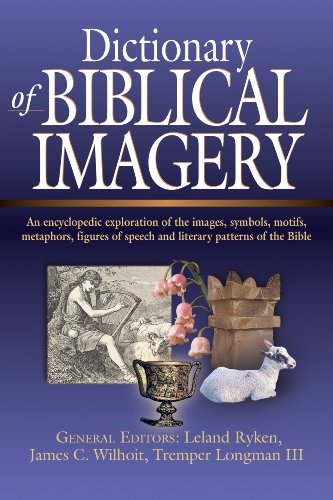Pastors traffic daily in books. Of course, we preach the Book, and so we’re endlessly looking for books that’ll encourage and equip us in ministry. Our limited time and a never-ending stream of books (Ecc. 12:12) means we need discerning guides who’ll point us in the right direction.
I asked a few pastors and scholars what one book other than the Bible they would commend to every pastor or Christian writer. So whether you’re preparing a sermon, writing an article, or just seeking to build a dependable library, below are 10 books that’ll serve you—and those to whom you minister.
1. Reformed Dogmatics
Herman Bavinck
(Baker Academic)
Recommended by Bruce Ashford
Herman Bavinck’s 4-volume Reformed Dogmatics [review] is my go-to systematic theology text, even though it’s now more than a century old. On any given biblical or theological topic, Bavinck’s Dogmatics provides a concise but meticulous overview of historical views, a rigorous systematic treatment from an evangelical and Reformed perspective, and a perceptive interaction with early modern philosophical trends. It’s at once biblical, scholarly, and pastoral.
Even though I disagree with a few of Bavinck’s conclusions (especially in ecclesiology, as I’m a hard-shell and inveterate Baptist), he’s almost always right. I rarely write on any topic of significance without Dogmatics at my elbow.
2. The New Dictionary of Biblical Theology
T. Desmond Alexander, D. A. Carson, Graeme Goldsworthy, Brian Rosner (eds.)
(InterVarsity Press)
Recommended by Tony Reinke
The New Dictionary of Biblical Theology is now 16 years old, but as relevant and useful as ever. Biblical theology, in my understanding, is a disciplined study of (1) the structure and dominate themes in a particular biblical book, and (2) how the important themes of Scripture develop canonically from Genesis to Revelation. This dictionary achieves both aims through the collective skill of the sharpest minds in the field (Carson, Beale, Alexander, Clowney, Dempster, Goldsworthy, Harris, Motyer, Packer, Scobie, Vanhoozer, and so on). Rarely do I write on anything of biblical importance that is not substantially covered in this reference, so it’s as handy to me as a writers’ thesaurus—a book always at hand. Which is why I keep a printed copy at my work office, one at my home office, and a digital copy on my computer (in Logos).
3. Commentary on the New Testament Use of the Old Testament
G. K. Beale and D. A. Carson (eds.)
(Baker Academic)
Recommended by Kevin Vanhoozer
Arguably the first theological crisis to confront early Christianity concerned whether the God of Israel and the Old Testament was also the God of the church and the Father of Jesus Christ. The status and authoritative use of the Hebrew Scriptures was never in doubt for the apostles and Jesus himself—but how did they actually read it in light of the cross and resurrection?
The Commentary on the New Testament Use of the Old Testament is now almost 10 years old, but the issue it addresses is as perennial, and urgent, as ever. Pastors (whether or not they preach from a lectionary) and theologians alike would do well to make use of this fine reference work. The editors—specialists in this area in their own right—have assembled an impressive list of scholars, who together provide more than 1,000 pages of commentary on each New Testament citation of or allusion to an Old Testament passage. Contributors examine the Old Testament passage in its original context before commenting on the use—argumentative, rhetorical, homiletical, theological, and so on—to which the New Testament author puts it. Anyone who wants to know what it means to be biblical in theology, or to know why Jesus is “Christ,” can benefit from this one-of-a-kind resource.
4. The Christian’s Reasonable Service
Wilhelmus à Brakel
(Reformation Heritage)
Recommended by Scott Swain
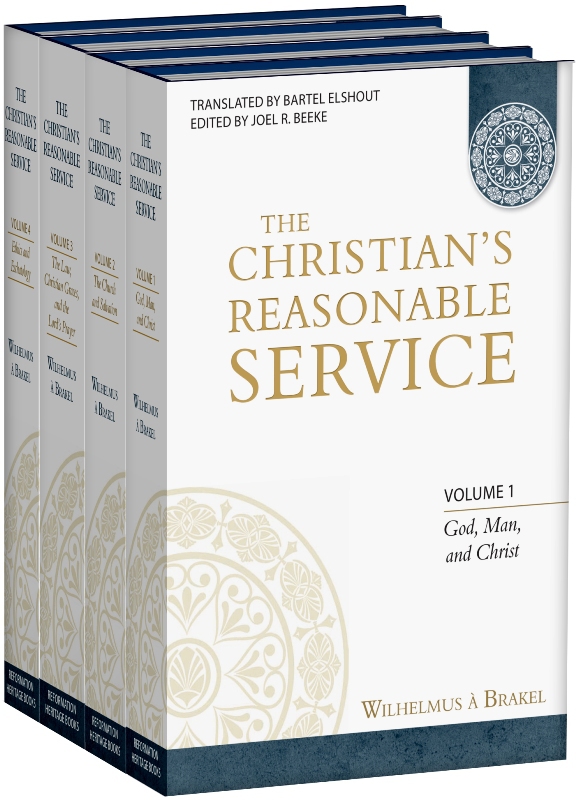
Wilhelmus à Brakel’s The Christian’s Reasonable Service, published at the turn of the 18th century, seeks to summarize (in 4 volumes no less!) the main topics of Reformed systematic theology for the benefit of laypersons. This design makes Brakel’s volumes a unique resource. They cover the broad sweep of Christian teaching on doctrinal and moral theology in a manner that is theologically sound, uncluttered by technical jargon, and chock-full of pastoral wisdom.
Brakel is useful for reviewing the main lines of biblical doctrine—be it the Trinity, the covenant of grace, or the church—and for finding rich applications of biblical doctrine for Christian instruction, correction, and consolation. The title of these volumes comes from Romans 12:1, and few volumes are better suited to assist the Christian in the renewal of the mind for a life of worship.
5. Calvin’s Commentaries
(Baker Books)
Recommended by Gavin Ortlund
I don’t often use older books for sermon prep, but Calvin’s commentaries are an exception. First, he’s blissfully free from the more technical questions of higher-critical scholarship (many modern commentaries get bogged down in facing such issues, which are of course important but less relevant for devotional purposes like preaching).
Second, he’s a skilled exegete. He has a knack for homing in on the important issues, he displays consistently good judgment, he balances brevity with depth, and so on.
Finally—all stereotypes aside—he brings a warm pastoral touch to his insights, often drawing out implications from a passage concerning godliness or worship I never would’ve thought of. (He’s especially good at rebuking human pride.) When we think of the significance of Calvin, we tend to think of his formulation of systematic concepts of predestination—but I believe his biblical commentaries are among his greatest contributions to the church.
6. The Complete Works of Francis A. Schaeffer: A Christian Worldview
(Crossway)
Recommended by Keith Plummer
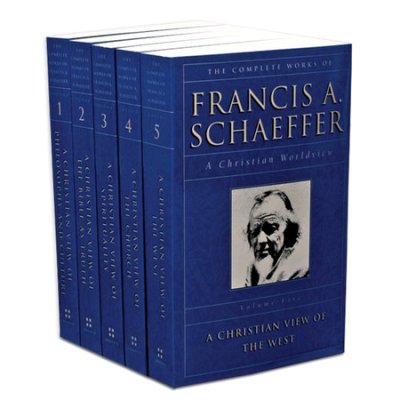 Through his writings, Schaeffer was a great help to me in my early Christian life as I wrestled with doubts about Christianity’s truthfulness and relevance. I continually return to his works for their blend of pastoral compassion and intellectual substance. Schaeffer's explanation of how the triune God is the only basis for a unified field of knowledge is desperately needed in our ever-fragmented times.
Through his writings, Schaeffer was a great help to me in my early Christian life as I wrestled with doubts about Christianity’s truthfulness and relevance. I continually return to his works for their blend of pastoral compassion and intellectual substance. Schaeffer's explanation of how the triune God is the only basis for a unified field of knowledge is desperately needed in our ever-fragmented times.
7. Explore the Book: A Survey and Study of Each Book from Genesis through Revelation
J. Sidlow Baxter
(Zondervan)
Recommended by Hershael York
I’m going outside the mainstream here, but in addition to the regular reference stuff that everybody knows and has, my “go-to” book from my youth on has been Explore the Book by J. Sidlow Baxter. It’s like a devotional, book-by-book study of the whole Bible. His applicational commentary on what is happening in the text and what it means has helped shape the way I present it. He outlines every book of the Bible, gives an overview with wonderfully devotional lessons. It’s unlike anything else. It’s worth ignoring his dispensationalism to get to his incredible view of the entire landscape of redemptive history. Plus, it’s readable. Your laypeople can read and love it.
8. A Greek-English Lexicon of the New Testament and Other Early Christian Literature (BDAG)
Bauer, Danker, Arndt, Gingrich
Recommended by Andy Naselli
The abbreviation for this lexicon is BDAG (for Bauer-Danker-Arndt-Gingrich). This is absolutely essential. A friend once asked me, “After the Bible, a hymnal, and a shipbuilding guide, what book would you want with you on a desert island?” My answer consisted of four letters: BDAG. That’s not a joke. Other than the Bible, it’s probably the single most important book in my library. This is the undisputed number-one lexicon for the Greek of the New Testament.
9. Dictionary of Biblical Imagery
Leland Ryken, James C. Wilhoit, Tremper Longman III (eds.)
(InterVarsity Press)
Recommended by Leland Ryken
The Dictionary of Biblical Imagery is a 1,000-page reference book for which I served as co-editor. The word imagery doesn’t quite do justice to what the book covers. What it covers is the recurrent archetypes that make up the content of the Bible—the plot motifs, character types, and images/settings that we find everywhere in literature and in life. While I se the book as a resource in teaching literature, I’ve been surprised by how regularly I hear of ministers using it in sermon preparation. For an entry like “water” or “quest story” or “wanderer,” you’ll find two things—where the image or motif is found in the Bible, and what meanings reside in it. The goal wasn’t simply to record the facts surrounding an image or motif but to explore what is elicited by it in the biblical text.
10. Church membership directory
Recommended by Garrett Kell

Pastors don’t give talks or speeches. We preach sermons. Sermons are one of God’s means to move souls to love him and others more faithfully. This is why I keep a copy of our church’s membership directory open before me while I prep—it is, in my mind, the second-most important book for every Christian. As I compose particular points of application I pause, flip through the pages of our directory, and pray. I ask God, “What does she or he need to hear? How would your word help their sorrows or sin struggles?” I then craft words aimed at specific sheep.
I would never use their name or specifics of a situation without permission, but I’m normally preaching to between seven and ten types of people during the sermon. I ask God, “How will she hear this truth and what questions will he have about that point?” Answers to these kinds of questions influence what I intend to say. The better a pastor knows the people under his care, the more precise his applications can be. I believe having both God’s Book and my membership book open before me aids me in preaching more helpful sermons.
Is there enough evidence for us to believe the Gospels?
 In an age of faith deconstruction and skepticism about the Bible’s authority, it’s common to hear claims that the Gospels are unreliable propaganda. And if the Gospels are shown to be historically unreliable, the whole foundation of Christianity begins to crumble.
In an age of faith deconstruction and skepticism about the Bible’s authority, it’s common to hear claims that the Gospels are unreliable propaganda. And if the Gospels are shown to be historically unreliable, the whole foundation of Christianity begins to crumble.

















